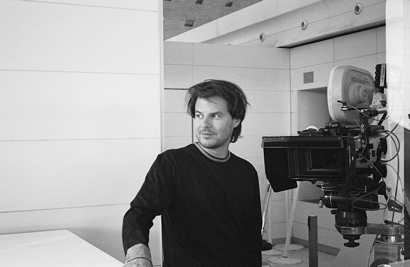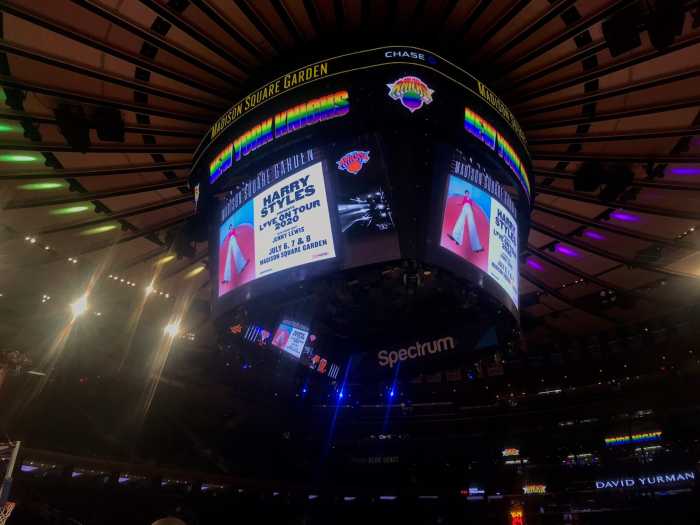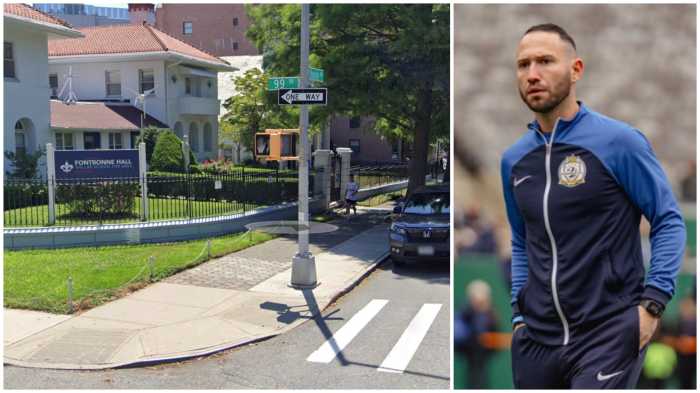The French director François Ozon discusses his films, including his latest, “5×2”
Few filmmakers tackle such a diversity of themes as does François Ozon, The French director, who has become known for intense psychological thrillers like “Swimming Pool” and “Under the Sand,” also made “Sitcom,” a black comedy about a family driven crazy by the presence of a rat, and “8 Women,” a sort of musical Agatha Christie whodunit with a very celebrated female cast that included Catherine Deneuve, Danielle Darrieux, Isabelle Huppert and Fanny Ardant.
Ozon has taken another career turn with “5×2,” a portrait of a disintegrating marriage. He uses the same in-reverse construction as Harold Pinter’s “Betrayal,” taking us backwards in time from the couple’s divorce to their first encounter one summer in Sardinia. It’s a sober, elegantly crafted film in which Stéphane Freiss and Valeria Bruni Tedeschi, as Gilles and Marion, reward Ozon with keenly intelligent, deeply felt, sensuous performances.
Paris-born Ozon, 37, made his first short film, “Photo de famille,” in 1988 and followed that with a dozen more before “A Summer Dress” (1996) really put him on the map. This 15-minute gem is packed with elements that continue to be the director’s focus—homosexuality, the difficulty of relationships, desire’s illusory pursuits and nature, particularly a beach’s as a magical setting.
I recently asked Ozon about the married couple in “5×2” and why the female appeared as a much stronger figure.
“It was important for me to show two different behaviors,” Ozon said. “I think now women have the real strength for life and I wanted to show a weak, fragile man thrown into difficult situations. For men, it’s very disturbing because they had the power for so many centuries and now women are equal, and able to have families, money and all the power. In my film, Marion is signing the divorce papers to start a new life but it’s more difficult for Gilles. It’s hard for him to express his feelings and he rapes her as a way for him to regain the power.”
For Freiss, according to Ozon, there was another scene even more disturbing than the rape—when he refuses to go to his wife’s bedside when she has their baby.
“He’s a father in real life,” Ozon said, “and couldn’t accept this situation. I explained that it’s really touching: Gilles is not able to be a father, to accept the arrival of this new person in his relationship with Marion. But he didn’t want to play this scene, so I said to him, ‘Maybe Gilles was an orphan, so in his mind there is something from his childhood, and he’s suffering. He’s not a bad man, but he’s just not able to be there when it’s difficult for him.’”
Ozon auditioned actors in couples to find the leads.
“I didn’t want to choose one actor and one actress, but the right couple. You had to believe in them as a couple from the first scene of the divorce, and it was not easy to find the right actors. Stéphane isn’t well known here, but he’s famous in France as a theater actor, while Valeria has made many films in France, and also directed one ‘It’s Easier for a Camel,’ very good, which just won a prize at the Tribeca Film Festival.”
Tedeschi has the chameleon-like ability to be very plain and then radiant from scene to scene:
“And I wanted to show her face and body changing. I like actresses who can be beautiful and then, suddenly, nothing. Like in life: sometimes you love your face, and the day after, you don’t.
Gilles’ brother in the film is a memorable character—an older gay man with a young lover who, somewhat resignedly, accepts their open relationship.
“This character was a way for me to play against the cliché of the freedom of gay couples,” Ozon said. “Because straight people often say, ‘You are gay: great! You can have many affairs!’ I wanted to show this man saying, ‘I don’t care if my boyfriend has some affair,’ but actually he’s suffering. It’s easy to say you have an open relationship, but sometimes not so easy to live with it. I wanted to show how difficult it is for a gay couple, too, for anybody, to be together.”
When asked about his own sexual identity, Ozon said, “You know, I’m a director, and my private life is private, but I think I tell many things in my films. I know in America it’s very important for people to say their sexuality. It’s hard to explain, but I think for an artist that puts you in a limited, gay space. You don’t say that Visconti or Fassbinder are gay directors, but that they’re great directors. After that, you can say they’re gay, but it’s not the first denomination. And you don’t say Spielberg is a straight director. I know gay people are a minority and that’s why it’s political. In America, you seem to need this, but I don’t think it’s the right way to defend the community.”
Ozon’s demurral aside, “A Summer Dress,” is an irresistibly joyous, positive celebration of being gay, something that Ozon said viewers find gratifying.
“I made it during the height of AIDS, when everything was so difficult for the gay community. I knew many friends who were very afraid and didn’t want to have sex anymore. But I wanted to make a film without guilt. And when I saw the response of the audiences, I realized I touched something very important for the gay community. But it was malgre moi.”—in spite of myself—“It was a very happy thing, like a gay flag. If a film can help you in your own life, that’s great for an artist.”
Ozon gladly accepted my comparison of the film with “Un chant d’amour,” Jean Genet’s groundbreaking 1950 study of homosexual love amongst prison inmates.
“That film was forbidden for a very long time,” he said. “It was impossible to show, but it’s a great movie, and, of course, I admire Genet. Fassbinder made a beautiful film based on Genet’s ‘Querelle,’ with Brad Davis and Jeanne Moreau, which I love.”
Moreau appears in Ozon’s next film, “Le temps qui reste,” about a 31-year-old man’s acceptance of his terminal cancer.
“It’s a film which is very close to ‘Under the Sand,’ which was about the loss of someone you love. This time it’s about accepting your own death, especially when it seems very unfair when you are very young. Moreau was amazing, like you say, a real seductress. She was so generous and very touched by this story. She’s had an amazing career, the only living actress who has made so many films with great directors. She’s very modern because she was one of the first actresses who were so close to directors. She loves movies and the director’s vision. It’s not so often that you meet such actresses. Many work for themselves: first them, and then the director. But Moreau is the opposite. Each day I asked her, ‘Can you tell me about Truffaut, Fassbinder, Antonioni, Welles?’ and she talked to me about them all.”
During the filming of “8 Women” Catherine Deneuve told a reporter, “I think François loves actresses, but I’m not so sure that he loves women.”
Ozon countered with, “I love Catherine Deneueve, the actress, but I’m not so sure about the woman.”
When reminded of the comment, he said, “So, you see, I can be a bigger bitch than Catherine Deneueve,” before adding, “With Catherine, we didn’t have a good time with the shooting because it was difficult to deal with eight actresses together. I couldn’t have a very close relationship with each one and it was a little bit sad sometimes. I think if I make one day a new film with her, and if she’s the only star, she will be amazing because she can be very generous too. Yes, maybe one day I will make a new film with Catherine, then with Isabelle Adjani, all the French actresses!”
gaycitynews.com


































